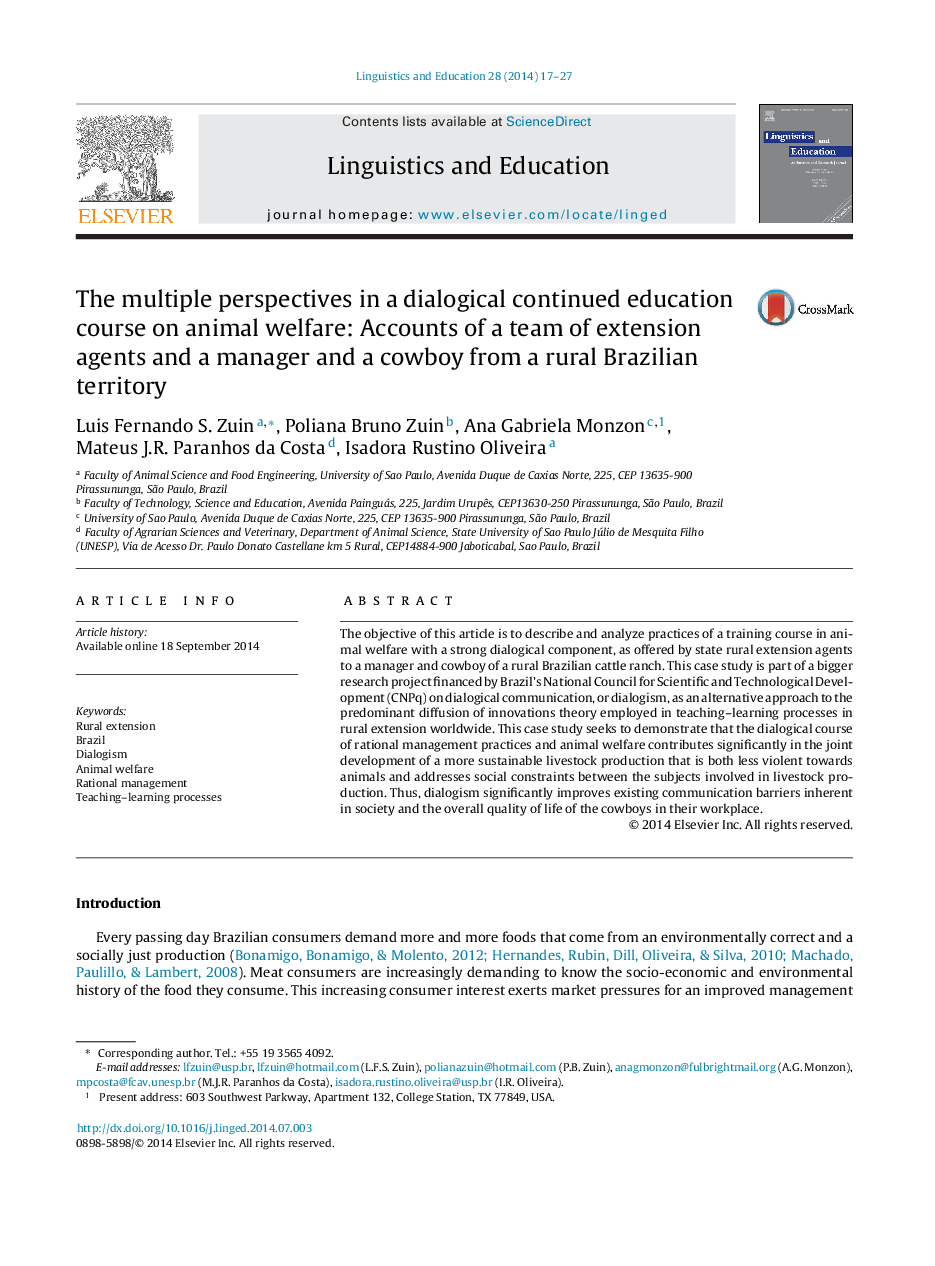| Article ID | Journal | Published Year | Pages | File Type |
|---|---|---|---|---|
| 366127 | Linguistics and Education | 2014 | 11 Pages |
•We study a course on better animal management practices in a Brazilian rural ranch.•Through dialogism a new technology is jointly developed and inserted in productive routines of the rural ranch.•In the dialogical approach the main objective is for extension agents to pursue proximity of their senses and meanings with the course participants.•Success of a course and the technologies developed will depend on the approach taken in the teaching and learning process.
The objective of this article is to describe and analyze practices of a training course in animal welfare with a strong dialogical component, as offered by state rural extension agents to a manager and cowboy of a rural Brazilian cattle ranch. This case study is part of a bigger research project financed by Brazil's National Council for Scientific and Technological Development (CNPq) on dialogical communication, or dialogism, as an alternative approach to the predominant diffusion of innovations theory employed in teaching–learning processes in rural extension worldwide. This case study seeks to demonstrate that the dialogical course of rational management practices and animal welfare contributes significantly in the joint development of a more sustainable livestock production that is both less violent towards animals and addresses social constraints between the subjects involved in livestock production. Thus, dialogism significantly improves existing communication barriers inherent in society and the overall quality of life of the cowboys in their workplace.
